Mishpatim 5782 – Is Your Emunah Complete?
L’ilui Nishmat Michael Ben Renee
Shiur presented in 5779
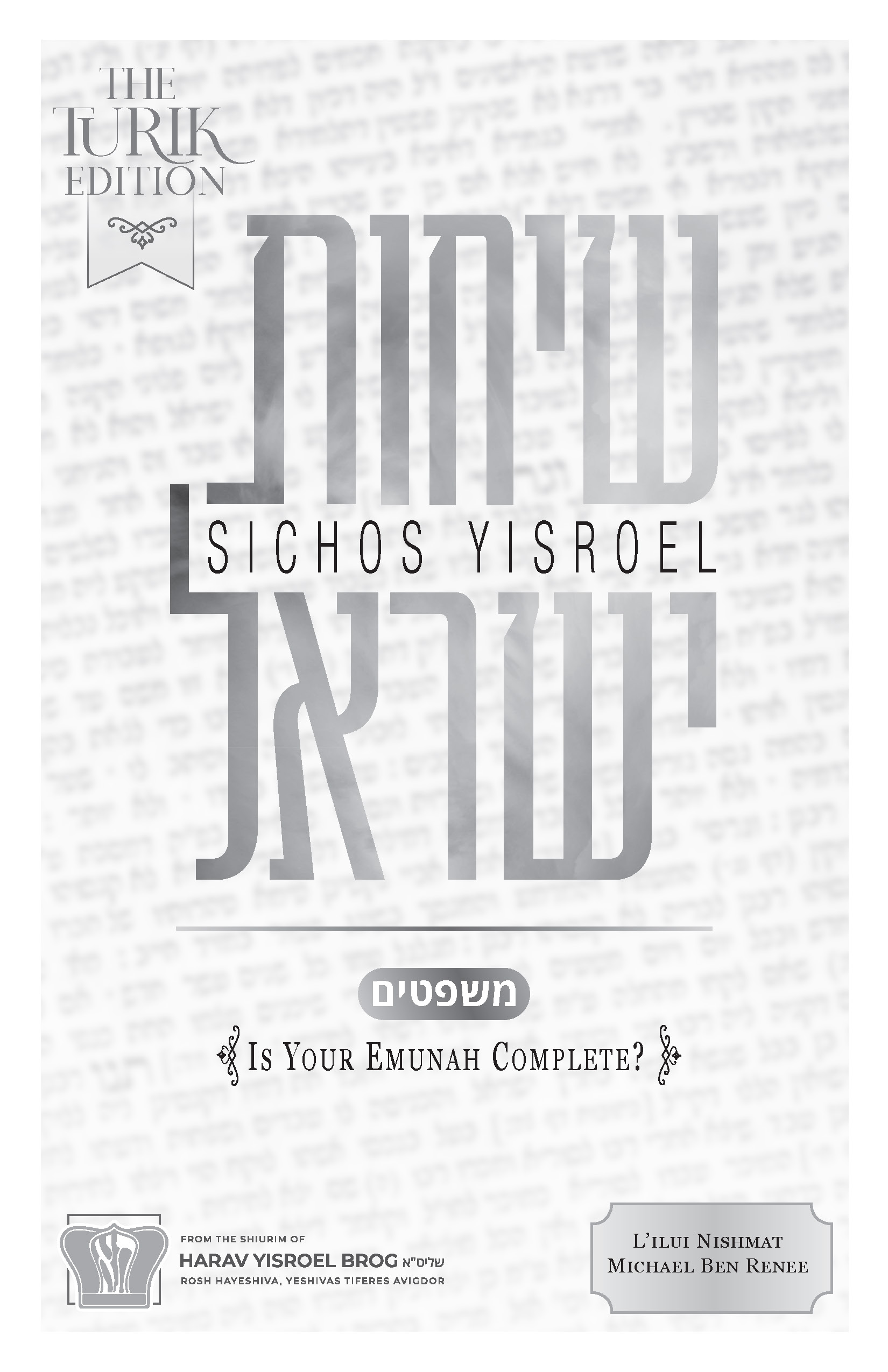
L’ilui Nishmat Michael Ben Renee
Shiur presented in 5779
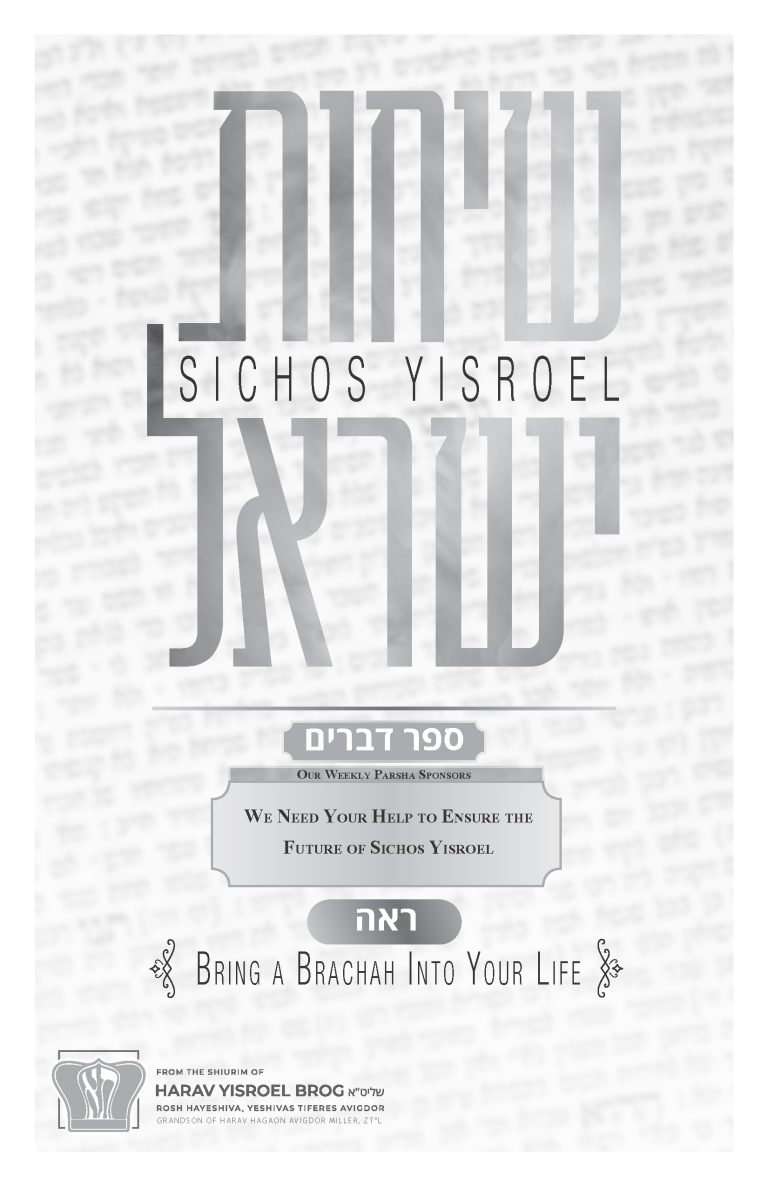
Moshe Rabbeinu is talking, and he’s says, “See, I am placing before you today a blessing and a curse…” Rashi translates “asher” to mean al manas, on condition. Rashi says it’s a brachah al manas asher tishmau. Now, you have to understand that Moshe Rabbeinu is talking about a specific event.
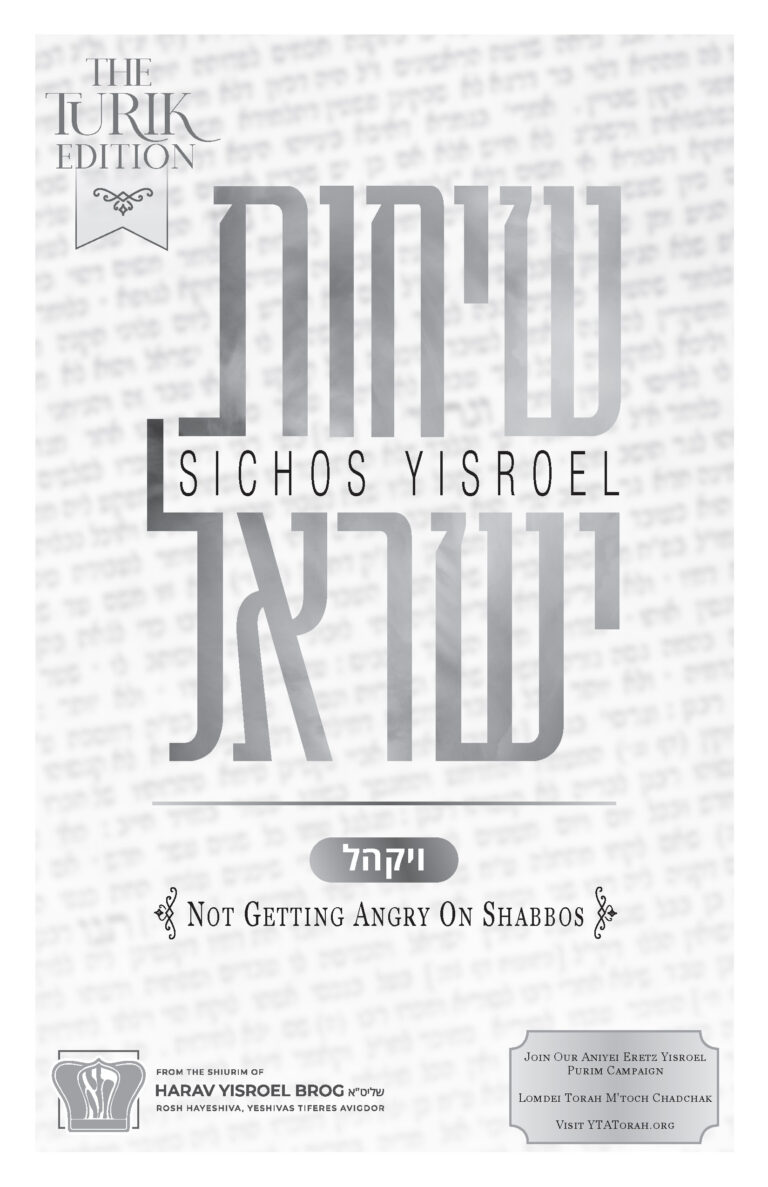
May Hashem’s positive accounting of Klal Yisroel merit Moshiach’s immediate coming! Visit YTATorah.org Shiur presented in 5778
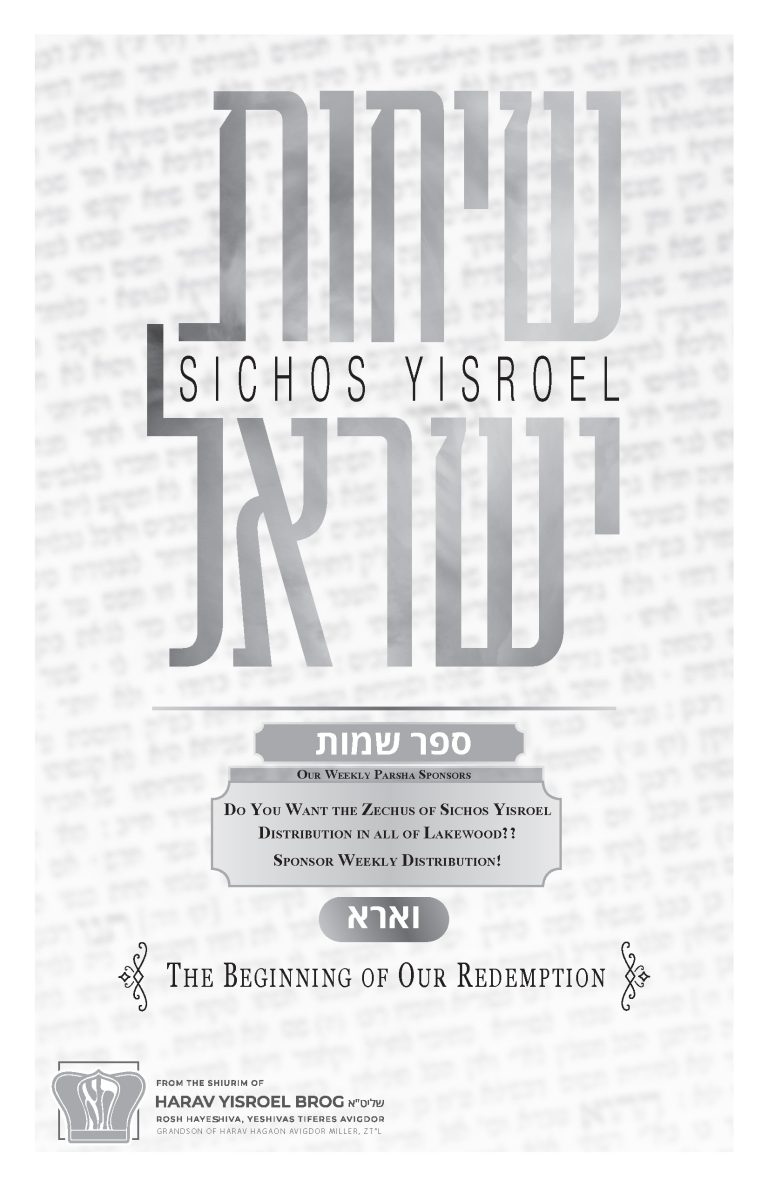
In this week’s parshah, we encounter the yetzias Mitzrayim. Pharaoh will tell you, Moshe and Aharon, to show him some miraculous proof that you are agents of Hashem and you are not just saying it on your own. Say to Aharon, take your staff, throw it down before Pharaoh, and this stick will turn into a serpent, a type of a snake. Interesting, the choice of words that Hashem uses, tanin, a word that is also used to refer to sea serpent. This was similar to the miracle that Moshe performed for the Jewish nation when he first came to see them but over there the staff became a nachash. In front of Pharaoh it didn’t become a snake. It became a tanin.
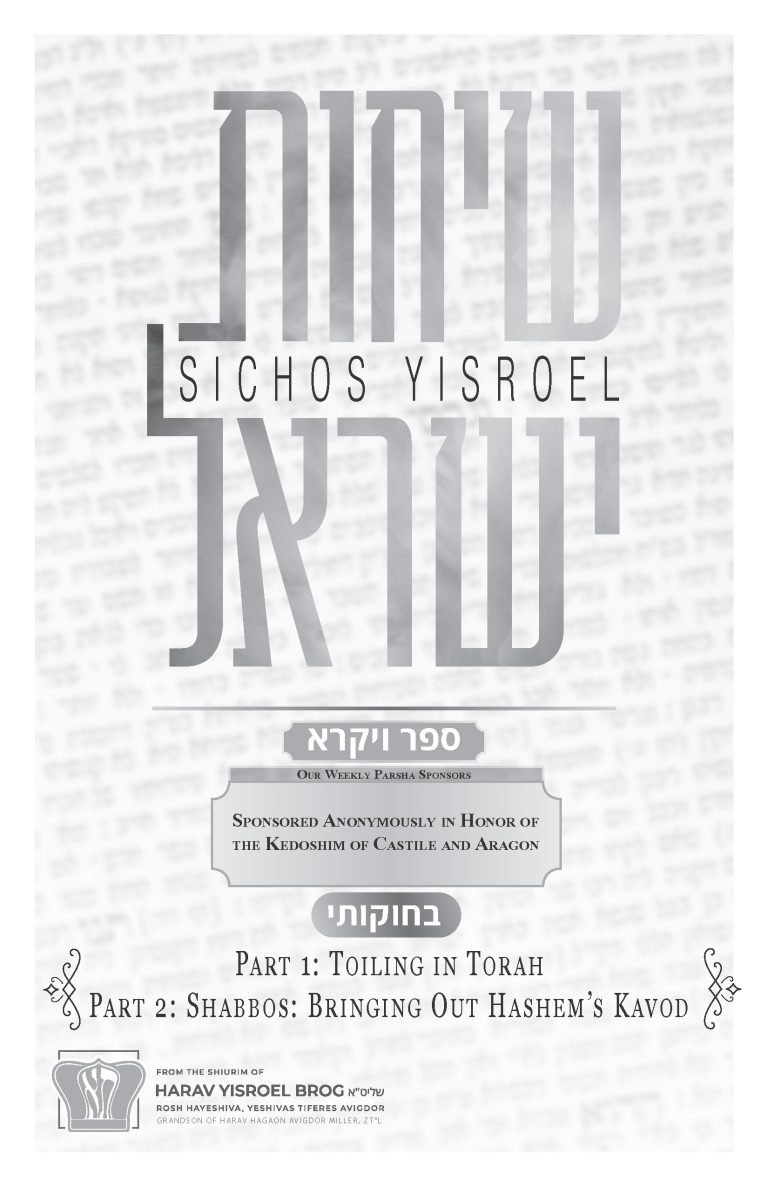
In the parshah it says, “if you walk in my statutes” (Vayikra 26:3). Rashi says when it says “and you should be shomer all My mitzvos,” so fulfillment of all the other mitzvos is covered with these words. That covers all the mitzvos. So how do I explain the words “if you walk in my statues”? What does that refer to?
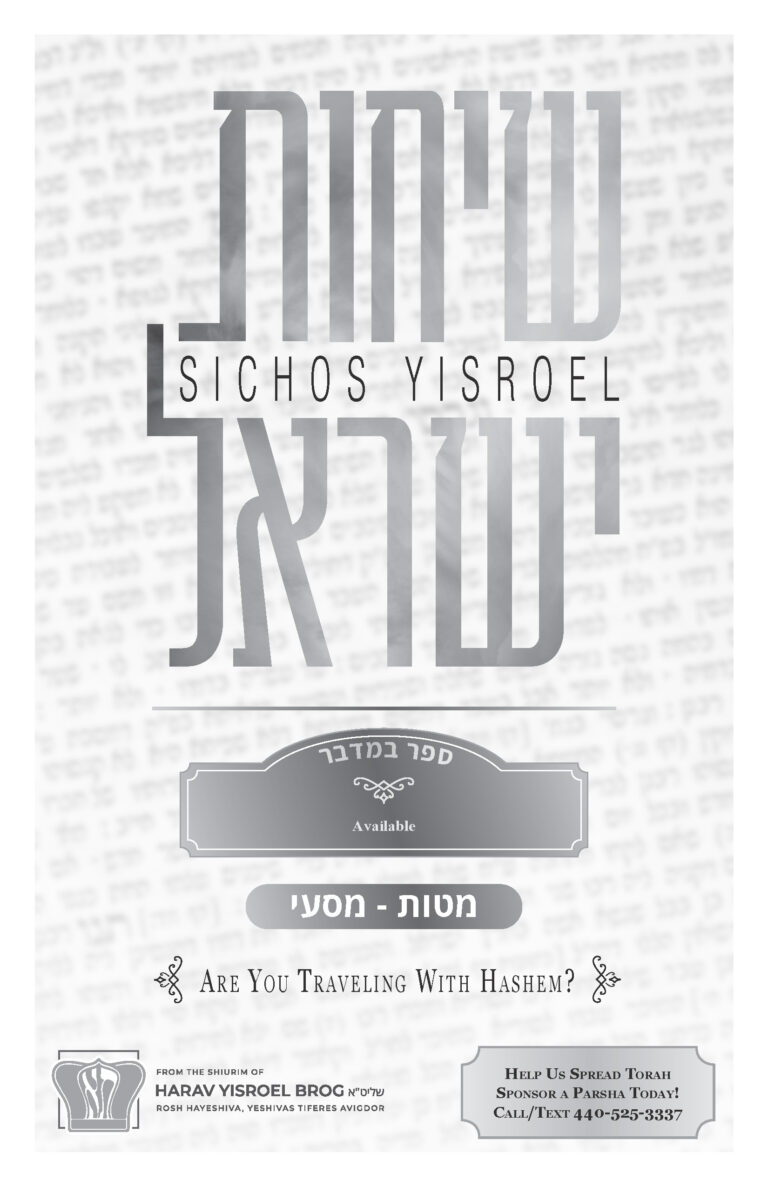
“These are the journeys of the Israelites…” Rashi cites Chazal, who ask why the Torah lists all their travels, and he answers that it was in order to make Klal Yisroel aware of the chessed of Hashem that they stopped and rested from one station to the next.
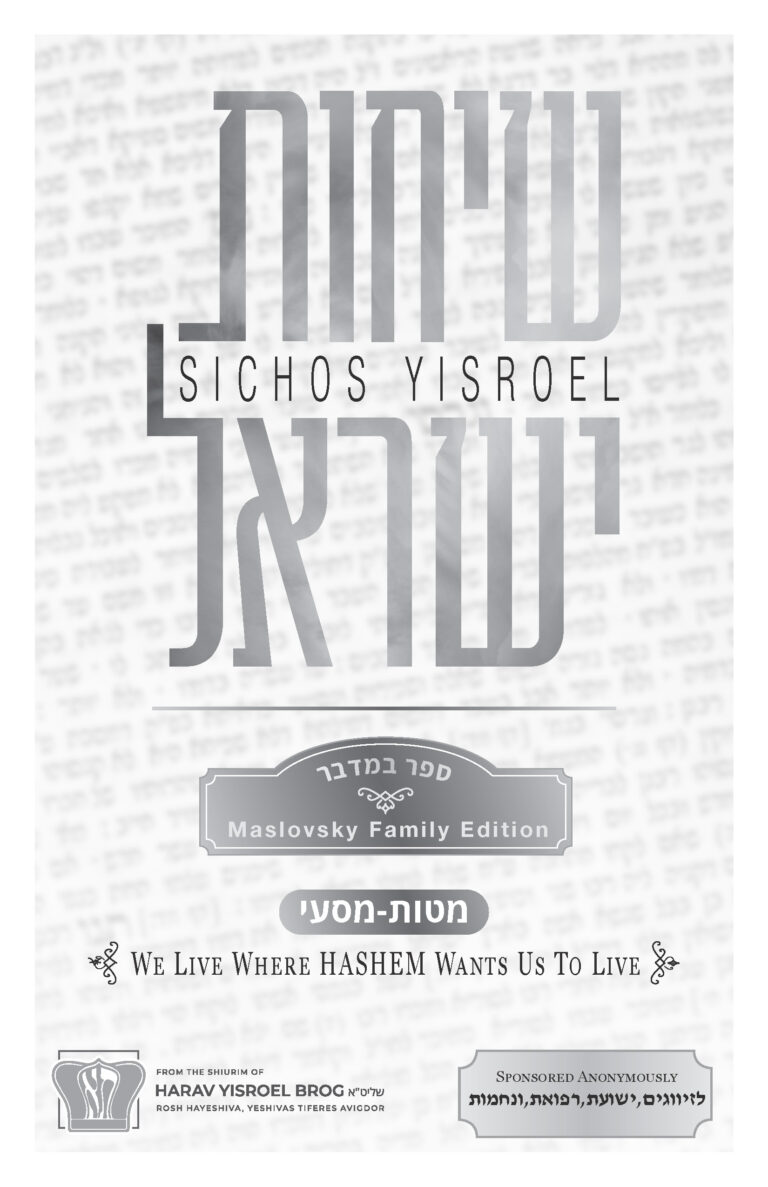
The passuk in Parshas Ma’asei says: אלה מסעי בני ישראל אשר יצאו מארץ מצרים לצבאתם ביד משה ואהרן – These were the marches of the Bnei Yisroel who started out from the land of Egypt, troop by troop, in the charge of Moshe and Aaron. One of the subjects of training that the Klal Yisrael experienced in the midbar was the parshah of masaos. It’s very interesting to take note of that.